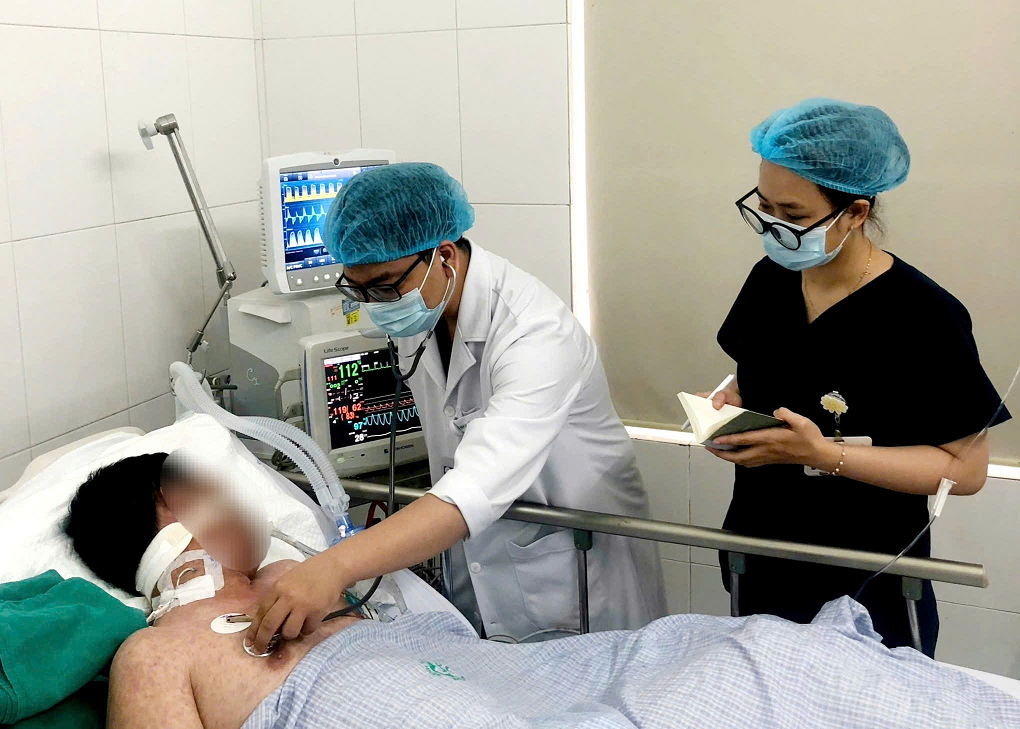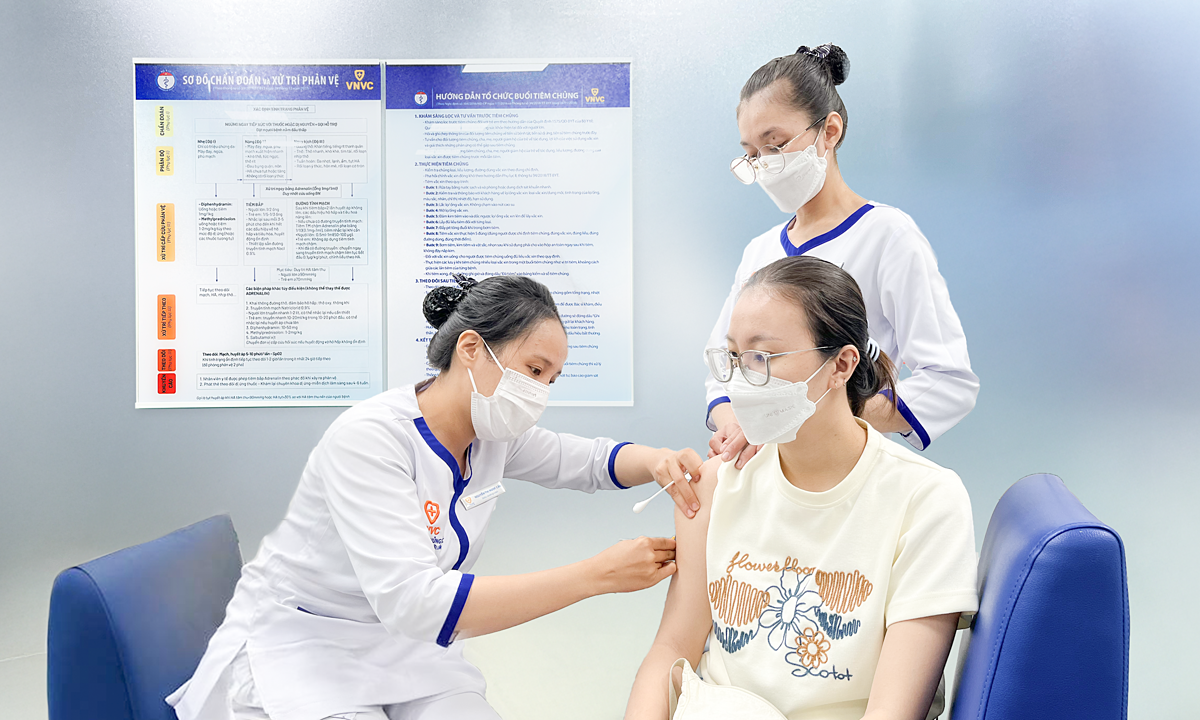Dr. Bach Thi Chinh, Medical Director of the VNVC Vaccination System, issued this warning in response to recent severe measles cases in adults. Bach Mai Hospital in Hanoi admitted two adult patients with severe measles complications on 29/6, one of whom suffered a rare case of myocarditis.
According to Dr. Chinh, these are off-season measles cases, as measles is rarely recorded in July. The cases also demonstrate that measles can lead to multi-organ failure within a short period.
 |
A 35-year-old patient from Thai Binh suffering from severe pneumonia, acute respiratory failure, myocarditis, and acute heart failure after a few days of measles, being treated at Bach Mai Hospital. Photo: Nguyen Ha |
A 35-year-old patient from Thai Binh suffering from severe pneumonia, acute respiratory failure, myocarditis, and acute heart failure after a few days of measles, being treated at Bach Mai Hospital. Photo: Nguyen Ha
Measles is harder to detect in adults than in children. In adults, the symptoms are milder, without the high fever and fatigue seen in children, and are easily mistaken for a common viral fever or rash. The incubation period is long, around 12-21 days, and patients only realize they have measles when the rash appears. This can lead to delays in treatment and increased risk of complications. They can also become a source of infection for others, especially those with weakened immune systems, such as young children, pregnant women, the elderly, and individuals with chronic illnesses.
Measles spreads more quickly and easily than Covid-19. Unvaccinated individuals are at high risk of infection when exposed to the virus, even by simply passing by a measles patient's bed. One person with measles can infect about 20 others.
Complications can include pneumonia, otitis media, and malnutrition. In pregnant women, measles can increase the risk of miscarriage, premature birth, and stillbirth. The prolonged immune suppression following measles also increases susceptibility to other infectious diseases like whooping cough, chickenpox, and influenza.
"The measles outbreak in Ho Chi Minh City last August serves as a reminder to be vigilant about measles even when it's not the typical season," Dr. Chinh said.
Dr. Chinh advises adults to seek medical attention and follow their doctor's instructions if they experience fever, fatigue, or a rash. Self-medicating or using folk remedies can worsen the condition and lead to complications.
For those recovering at home, a nutritious diet rich in green vegetables, fruits high in vitamin C, and plenty of fluids is recommended. For fevers of 38.5 degrees Celsius or higher, standard fever reducers can be used. Hospitalization is necessary if there are signs of fever, cough, rash, conjunctivitis, or nasopharyngitis.
 |
Adults receiving the measles-mumps-rubella vaccine at the VNVC Vaccination System. Photo: Dieu Thuan |
Adults receiving the measles-mumps-rubella vaccine at the VNVC Vaccination System. Photo: Dieu Thuan
Currently, the strategy for measles prevention in both children and adults emphasizes vaccination. According to the WHO, a measles vaccination rate of over 95% is needed to interrupt the chain of transmission within the community.
Vietnam has a full range of single measles vaccines and combined measles-mumps-rubella (MMR) vaccines available for individuals from 6 months of age to adulthood. Adults can choose from options like the single measles vaccine (MVVAC-Vietnam) or combined MMR vaccines (Priorix-Belgium and MMR II-USA). Women are advised to get vaccinated against measles before pregnancy, ideally three months prior, but at least one month, depending on the specific vaccine. Two doses of the vaccine are 98% effective in preventing measles and provide protection for those exposed to the virus within 72 hours.
In addition to vaccination, individuals should regularly wash their hands with soap and maintain personal hygiene, paying attention to the nose, throat, eyes, and mouth. Living spaces should be clean and well-ventilated. Daycare centers, preschools, schools, and offices should regularly disinfect toys, learning materials, classrooms, tables, chairs, playgrounds, workspaces, and computers. Everyone should drink plenty of water, eat a nutritious diet to strengthen their immune system, and improve their physical condition through regular exercise to avoid illness.
Dieu Thuan












